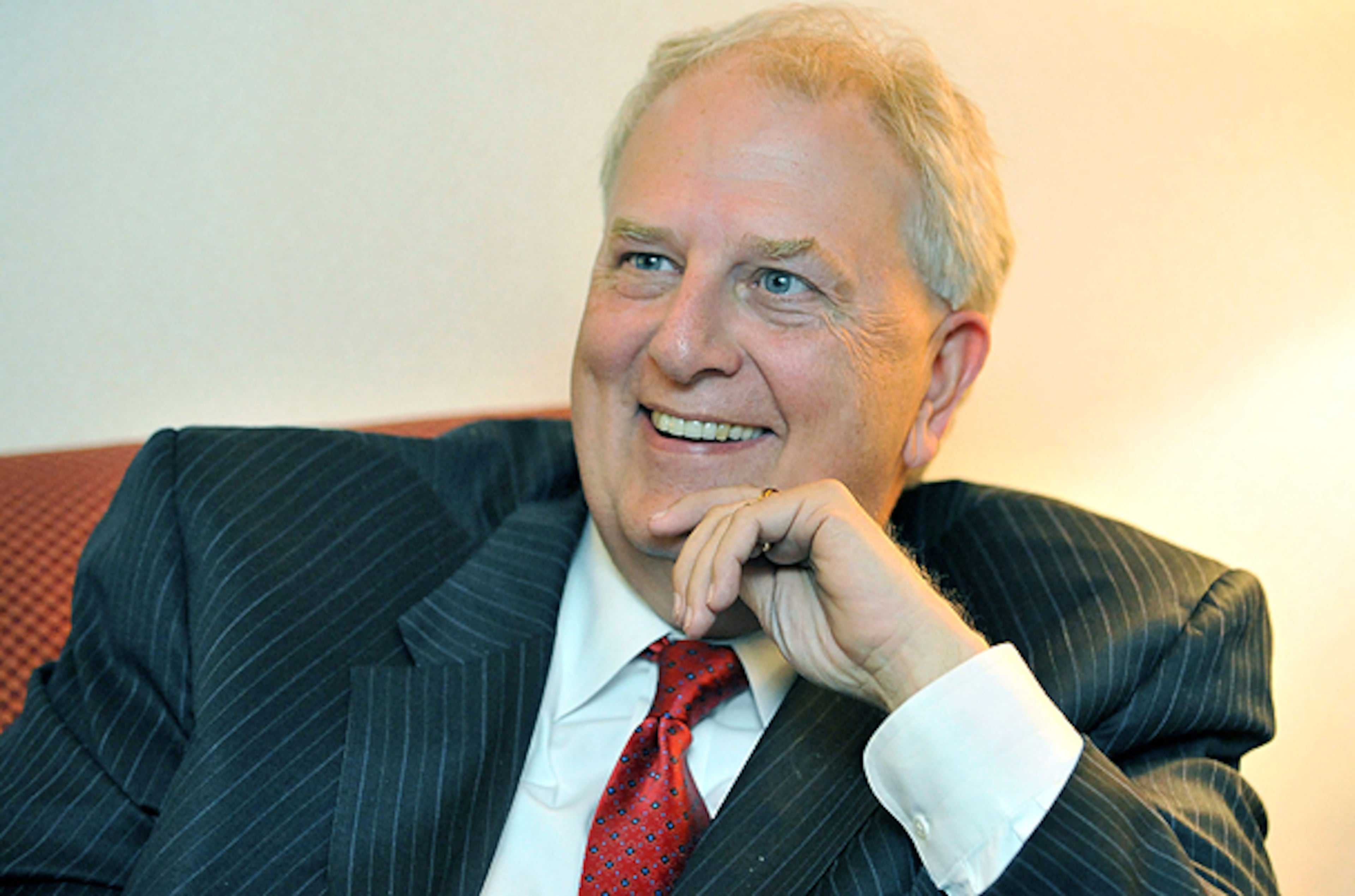OPINION: Studies keep saying conservatives are happier than liberals. Why?

With the Democratic presidential candidacy swap all-but-complete, liberals everywhere seem to be backing away from the ledge.
But worry and fret still abound because Donald Trump is still in the thick of it.
Anxiety, it seems, is the natural state of the left, even in good times. Why is that cup of organic herbal tea always half empty?
Recently, a podcast I enjoy — Plain English — carried an episode titled, “Why are conservatives happier than progressives?”
The host, Derek Thompson, a self-professed progressive, said, “If the progressive movement wants to grow, I think it needs a message more alluring than ‘Come on in, the water is miserable.’ "
It’s also how the two ideologies conjure up the scale of future threats.
Right-wingers worry that if Kamala Harris wins, then Drag Queen Reading Hour at the library will become mandatory.
Lefties worry if Trump wins, democracy is dead and the gulag awaits.
I was skeptical of such “research,” so I Googled “Conservatives happier than liberals.” Tons of stories appeared. Thinking there might be search bias, I flipped it, seeking “Liberals happier than conservatives.”

Here’s the first five hits:
— “Why being conservative is correlated with Higher Happiness,” Tufts University, 2023
— “Why Do Conservatives Report Being Happier Than Liberals?” The Journal of Social and Political Psychology, 2015.
— “Why are liberals less happy than conservatives?” Institute for Family Studies, 2022
— “Conservatives are happier than liberals, but why?” University of Rochester, 2011
— “Why are conservatives happier than liberals?” RealClearScience, 2022
A Pew Research Center articled put it this way: “Ever since the General Social Survey first asked the question in 1972, Republicans have always been happier than Democrats. But the current gap is among the largest on record.”
That was in 2008.
A decade later, the Washington Post reported things hadn’t changed, “The two trend lines generally move in tandem and don’t appear to show much response to changes in the occupancy of the White House.”
Hmmm. There might be something to this. I lean left and sometimes get gloomy about how things are going.
But I always chalked that off to being Irish. I enjoy gloom. I’ve got nine gradations of melancholy.

I called former Gov. Roy Barnes, an old-timey Dem, to see what he thinks.
“Happy? Republicans happy?!?” he responded incredulously. “All I hear is depression and gloom. That immigrants are coming to take our jobs. That just seems weird.”
In trying to explain the studies’ findings, he said, “Generally, Republicans are better off financially, although there’s been some movement on that.”
He added that Democrats “worry about those who live on the margins of life.”
Josh McKoon, a former GOP state senator who heads the state GOP, pondered the question and said, “As a group, the Republicans I’ve dealt with have a deep and abiding love for their country; as a group have more intact family situations and are people who are serious about their faith. Those are ingredients for a happier life.”
Republicans who are active in politics, he said, are there to “conserve what is good in their community, county and culture.” Democrats, he said, are of the opinion “that something is wrong. If you’re upset about something and need change then you’re probably unhappy in some way.”
McKoon and Barnes must have been wearing their social scientist caps when I called, because much of what they ventured are some of the theories found in those studies and polls.
The Tufts paper noted that sadder people cluster on the left: “If a liberal and a conservative have the same income, education, race, gender, age, marital status and religious attendance, the conservative will feel more fortunate. A critic might say that Liberals are people who — regardless of their actual social positions — rate their own circumstances relatively poorly, and that attitude drives their ideology and makes them unhappy or else reflects their unhappiness.”
Democrats, like Barnes, would say that’s being socially conscious.

A Canadian study parroted what McKoon told me, saying one reason that “conservatives might be higher than liberals in emotional stability” is that “emotionally stable people may feel less need to adopt an ideology that advocates changing the status quo. In particular, lower neuroticism may lead people to feel less aggrieved by apparent inequities in the distribution of resources.”
Other studies say conservatives more often list patriotism and religion in surveys and are more likely to be married — all components to happiness.
But there’s pushback.
One study says happiness surveys are usually self-reported and it appears conservatives are more prone to “engage in self-deceptive enhancement.”
Just because you say you’re jolly doesn’t mean you are.
The researchers also employed an expert in facial expression analysis to study photos of politicians, Twitter users and LinkedIn users. Liberals, they found, “smiled more intensely and genuinely in photographs.”
As liberals often like to say, “Trust the science.”
At least on that last study.



